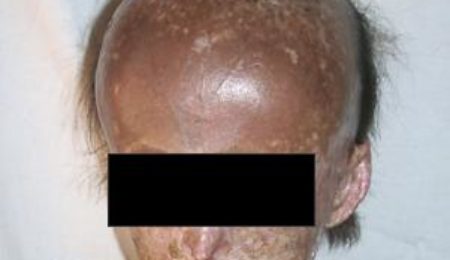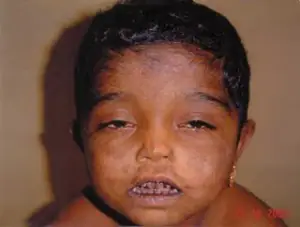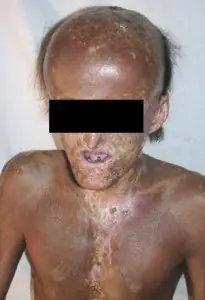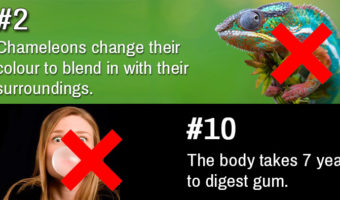‘Porphyria’ The Vampires Disease.

By just having a glimpse at the heading many of us may think that a patient who is affected by such a disease may transform into some kind of fang gnashing, blood-drinking supernatural creature. However, this kind of transformation is only confined to the movies. Beyond the realms of Hollywood, it doesn't cause the victims to transform into a creature as described above.
The Vampires disease or Porphyria which is its scientific term is a set of genetic disorders in which an important part of hemoglobin called heme is not made properly which means there is a malfunction of the hemoglobin production. People suffering from it face symptoms manifested by mythological vampires. Their skin is sensitive to sunlight, their urine is reddish to purplish in colour, the gums are shrunk making the teeth look more prominent and canine-like and they have an adverse reaction to garlic. Other major symptoms include abdominal pain or cramping (only in some forms of the disease), problems with the nervous system and muscles (seizures, mental disturbances, nerve damage).
There are about eight different types of porphyria;
Four of these can sometimes cause sensitivity to light: Erythropoietic Protoporphyria (EPP) or Protoporphyria, Congenital Erythropoietic Porphyria (C.E.P.), Porphyria Cutanea Tarda (PCT) and Variegate Porphyria. Taken together, all forms of porphyria afflict fewer than 2,00,000 people in the United States. Based on European studies, the prevalence of the most common porphyria, porphyria cutanea tarda (PCT) is 1 in 10000, the most common acute porphyria, acute intermittent porphyria (AlP) is about 1 in 20000 and the most common erythropoietic porphyria, erythropoietic protoporphyria (EPP), is estimated at 1 in 50000 to 75000. Congenital erythropoietic porphyria (CEP) is extremely rare with prevalence estimates of 1 in 1,000,000 or less.

Presently this condition is treated with a combination of high carbohydrate diet and avoiding triggers like alcohol and crash dieting that can lead to an attack. For attacks glucose is administered via an intravenous line, iron is given and sometimes other medications are given to control the symptoms.
Thus people suffering from this disease shouldn't be feared because unlike the dreaded beasts of folklore and superstition they are no more than patients suffering from a rare class of genetic disorder who require medical aid as well as love and affection to lead a normal life like others in the world.
























